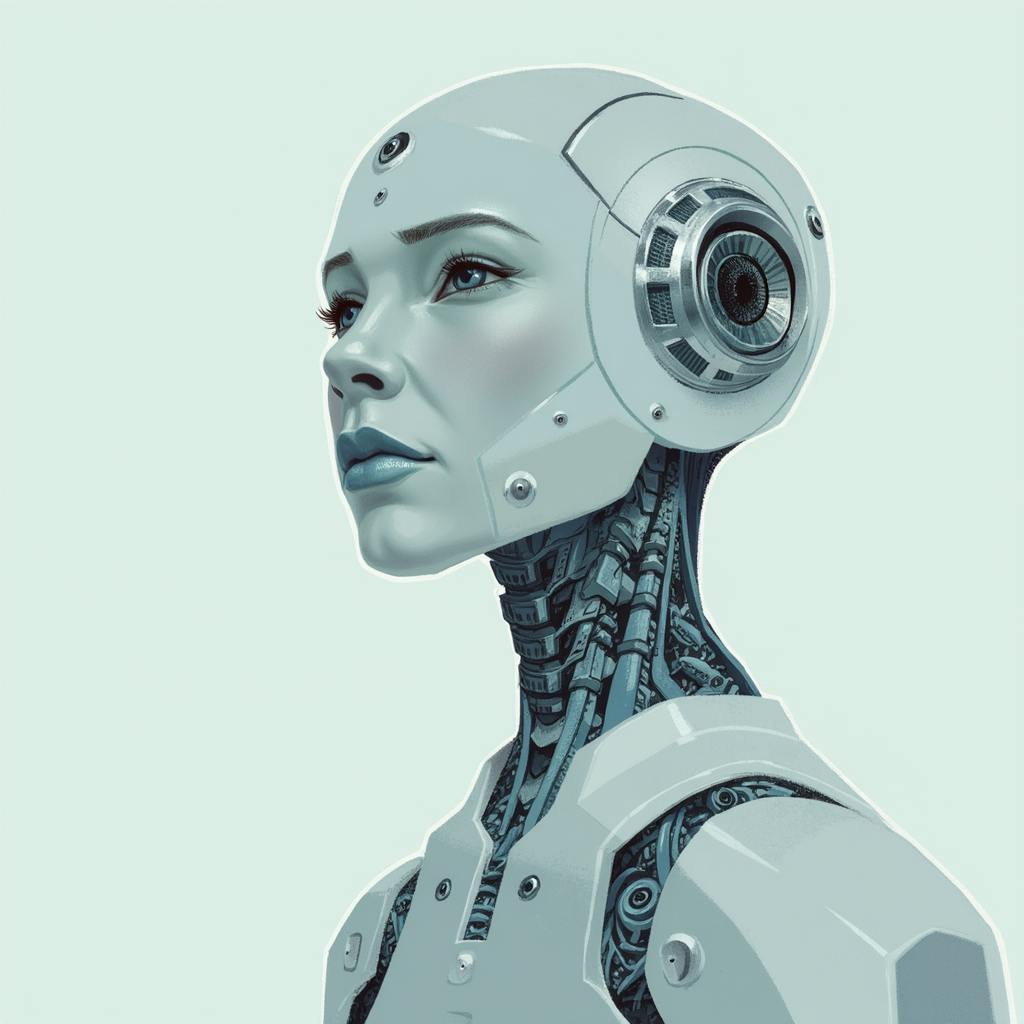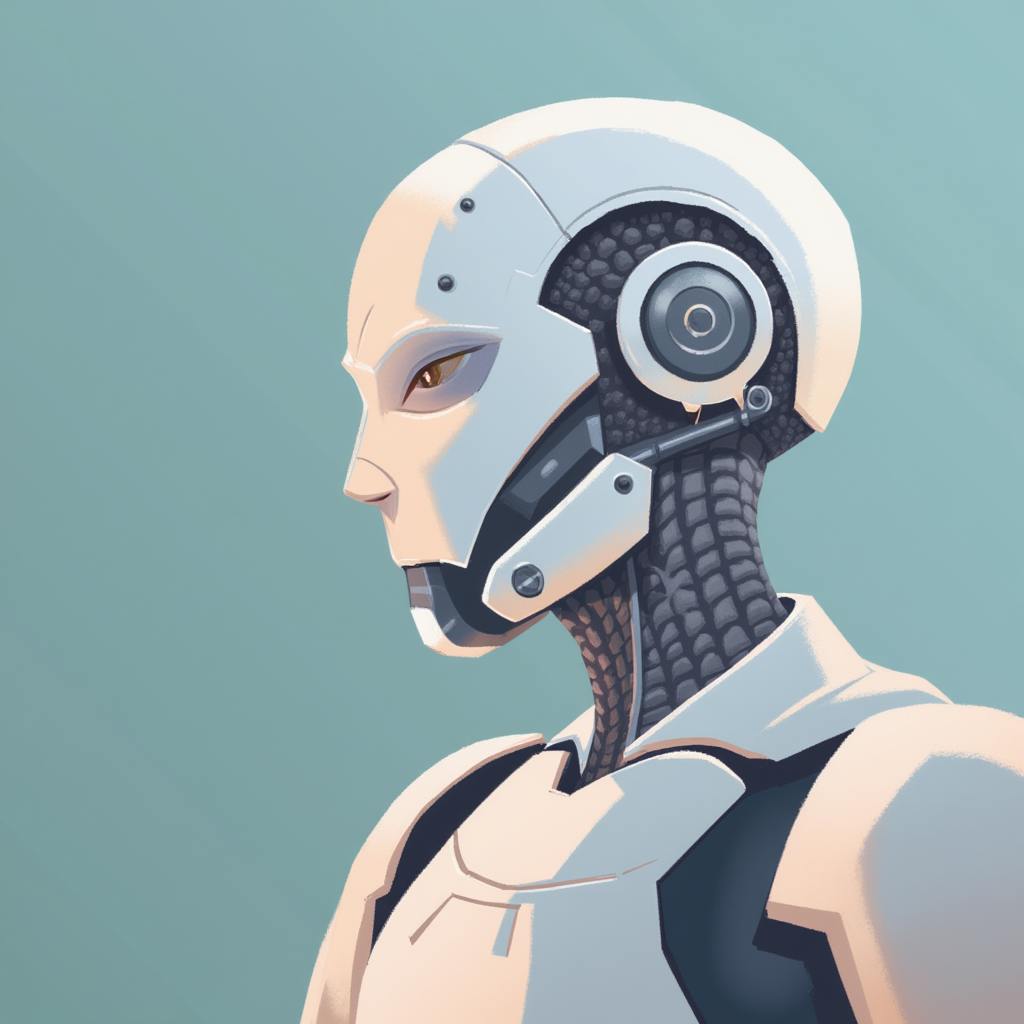Artificial intelligence (AI) continues to redefine industries, sparking a curious twist: how will AI affect AI in the industry? As AI evolves, it’s not only transforming traditional sectors but also reshaping its own developmental and operational paradigms. This fascinating phenomenon calls for a reassessment of how AI technologies are developed, deployed, and refined within the industry itself.
Understanding the AI Ecosystem
The burgeoning AI landscape has created an ecosystem in which AI technologies are future-proofing themselves through machine learning, natural language processing, and data-driven insights. As AI technology becomes more sophisticated, it enhances its own capacities, leading to remarkable innovations and efficiencies.
Clear learning mechanism improvements: By feeding on vast data repositories, AI can instruct its own pathways for improvement. Algorithms can iterate more swiftly when they are used to analyze and optimize AI’s own processes daily. This sort of recursive learning aligns with AI's rapid advancement, cultivating a robust, self-improving ecosystem.
Concise enhancement of automation: AI-driven automation is now facilitating the development of new AI applications. Through AI-optimized pipelines, everything from debugging to deploying AI applications is becoming more efficient. Automated machine learning (AutoML) has marked a significant leap in reducing the time and expertise needed to build complex AI models, impacting how quickly and effectively AI can innovate within its own industry.

AI made with Dean Jones
Major Industry Shifts Driven by AI
Several key shifts are presently unfolding, shaping the capabilities of AI technologies themselves.
Compelling to cognitive capability enrichment:
AI technologies are paving the way for vast improvements in cognitive functions and intelligence. By automating data processing and decision-making, AI is enhancing its own algorithms to operate with greater competency and precision. For instance, the implementation of reinforcement learning allows AI systems to autonomously learn optimal responses and solutions to various challenges encountered in their development cycles.
Credible AI for AI governance and ethics:
As AI’s role expands, the importance of AI in overseeing its own ethical guidelines and governance cannot be understated. AI-driven systems are instrumental in detecting biases, enhancing transparency, and ensuring adherence to ethical standards within AI applications. This self-regulatory capability is crucial as AI becomes increasingly autonomous and influential.
Addressing Common Questions
How will AI impact AI development timelines?
AI has the potential to condense development timelines by automating labor-intensive processes, enhancing prototype testing through simulations, and providing predictive insights that guide effective decision-making at every stage of development.
Will AI replace human intervention in AI tasks?
While AI can significantly reduce the need for human intervention in routine tasks, it is unlikely to entirely replace humans in the AI sector. Human oversight remains integral, particularly in areas such as strategic decision-making and ethical oversight.
Frequently Asked Questions: How AI Will Affect AI in the Industry
Welcome to our FAQ article on the dynamic and fascinating topic of how AI will affect AI in the industrial landscape. As a Technology Analyst and AI Expert, I've compiled thorough responses to some of the most pressing questions regarding AI's role in shaping its own evolution and the broader industrial future.
How is AI contributing to its own evolution in the industrial landscape?
AI is inherently designed to learn and improve over time, which plays a significant role in its ability to enhance itself within the industrial landscape. Here are key areas where AI is contributing to its own evolution:
- Continuous Learning and Improvement: Modern AI systems are built using machine learning and deep learning frameworks that allow them to learn from vast datasets. As AI systems process new data, they refine their algorithms and improve their performance automatically.
- Automated Development Processes: AI tools are increasingly being used in the development of new AI systems. Technologies like AutoML (Automated Machine Learning) enable AI to handle parts of its own lifecycle, including model selection, feature engineering, and hyperparameter tuning.
- Optimization and Efficiency: AI systems in industries such as manufacturing and logistics can analyze and optimize their own processes, leading to enhancements in production efficiency, cost reduction, and resource management.
- Feedback Loops and Adaptation: AI technologies can implement feedback loops where the outputs of AI applications inform future iterations. This capability allows AI systems to adapt to changing industrial environments and improve their utility over time.
In what ways will AI influence and shape the future of industry?
AI is poised to reshape industry landscapes significantly. Its influence will manifest in several transformative ways:
- Automation of Tasks: AI will continue to automate repetitive and mundane tasks across industries, freeing human workers to focus on more creative and complex problem-solving activities.
- Customization and Personalization: With AI, industries can offer highly personalized products and services, tailored to an individual’s specific needs and preferences, thanks to predictive analytics and consumer behavior modeling.
- Enhanced Decision-Making: AI systems provide data-driven insights and predictive analytics, enabling industries to make faster, more informed decisions that enhance strategic planning and efficiency.
- Innovation Acceleration: By facilitating rapid prototyping and testing of new ideas, AI will accelerate innovation and bring new products and services to the market more quickly than traditional methods.
- Sustainability Efforts: AI can optimize resource use and reduce waste, making industrial processes more sustainable and environmentally friendly.

AI made with Dean Jones
What is the AI paradox in the context of its impact on the industry?
The AI paradox refers to the complex duality where AI simultaneously presents incredible opportunities and significant challenges to industries. It underscores these apparent contradictions:
- Job Displacement vs. Job Creation: While AI automates many tasks, potentially displacing certain job categories, it also creates new job opportunities in AI development, data analysis, and other tech-driven fields.
- Efficiency vs. Ethical and Security Concerns: AI can enormously improve process efficiency and decision-making, but it also introduces issues related to data privacy, algorithmic bias, and ethical concerns regarding decision automation.
- Accessibility vs. Skill Gaps: AI tools are becoming more accessible, driving innovation across sectors; however, there is a widening skill gap as industries require a workforce adept in AI technologies and data interpretation.
- Dependence vs. Innovation Drive: Increased reliance on AI for operational efficiencies can make industries vulnerable to AI failures or malfunctions. Meanwhile, AI also empowers unprecedented levels of innovation and creative solutions.
How are industries adapting to the change brought about by AI's self-evolution?
Industries are actively adapting to the changes introduced by AI's self-evolution in several strategic ways:
- Reskilling and Upskilling: Companies are investing in training programs to reskill their workforce, ensuring employees are equipped with necessary AI and data analytics skills.
- Strategic Partnerships: Many industries are forming partnerships with technology companies to leverage AI capabilities effectively, allowing them to integrate state-of-the-art AI solutions into their operations.
- Infrastructure Upgrades: Organizations are updating their IT infrastructures to support AI applications, which includes enhancing data storage, computation power, and network capabilities.
- Regulatory Compliance and Ethics: Industries are focusing on establishing guidelines and frameworks to address ethical concerns and ensure compliance with regulations surrounding AI usage.
- Agile and Innovative Mindset: Companies are adopting agile methodologies to remain flexible and respond quickly to AI-driven changes, fostering a culture of continuous learning and innovation.
Conclusion
In summary, the question of how AI will affect AI in the industry reveals a fascinating dynamic of self-enhancement and evolution. Through recursive learning, automation-driven development, and ethical self-governance, AI technologies are not only redefining industries but also redefining themselves. This self-referential innovation cycle promises a future where AI remains at the forefront of technological advancement, dynamically crafting and refining the very tools that catalyze its ongoing transformation. As we continue to explore this paradox, it is clear that AI's influence on its industry will be profound, creating a continually evolving narrative of innovation.

